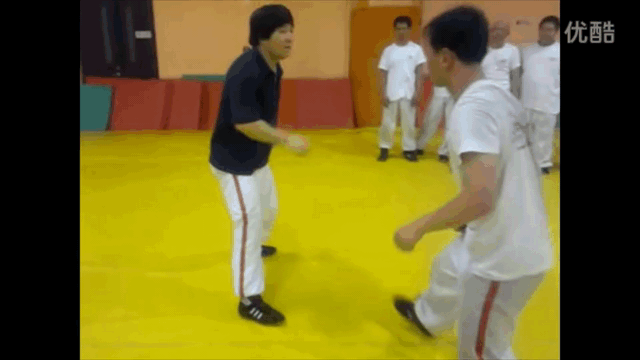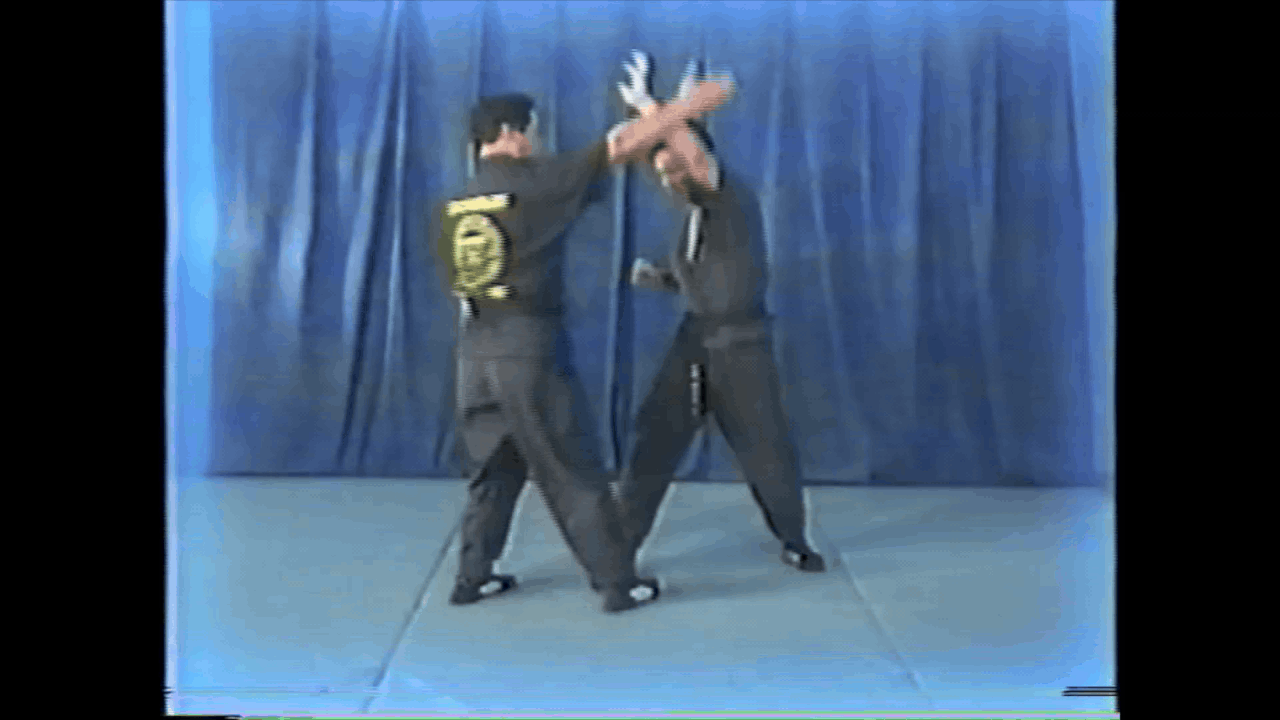Jowga mentioned (and has mentioned in the past as well), his goal is to learn, not necessarily to win.
I find the best way to explain stuff through examples, and I'm going to use judo as an example - even though he doesn't practice judo, I don't know his style of kung fu, and think you and I both understand judo. Hopefully that helps get my viewpoint across.
Also disclaimer: if anyone comes to this thread to learn how to deal with head pressure, feel free to ignore this post. It's on a tangent, and you'll just end up reading a long post, not finding what you're looking for. If you're reading the tangent and want to read more about it, enjoy.
So for instance, if he wants to practice a tai otoshi, he might spend more of his time in randori trying to set up a tai otoshi, and developing strategies to use that. Or ways to use the threat of it to accomplish something else (ie: you try two tai otoshi's, they both fail, and then you 'go' for a third, when they adjust their weight switch to a shuffle step and do a kibisu gaeshi instead). So in that example, even if he doesn't throw them with the technique he's practicing, he still uses that technique to throw them.
Which is great! And obviously, his ultimately goal is still to get them to the ground, with that caveat (trying to incorporate tai otoshi somehow). Alternately, his main goal for a day may be to avoid sweeps, and force his opponent to use throws - also a good use of randori. With a specific goal, which would probably help him improve his footwork and balance.
Which, again, is great! I am absolutely not advocating against this. It's how you learn how to use something new. But lets say you spend most of your time doing these, then go to a judo competition. There's a good chance that you'll lose. Not because your technique is lacking, but because you never focused 'purely' on winning before. Performing his own foot sweeps may be his best technique, but he might not be as good at them as he could be, because he spends so much time focusing on other stuff. So he has great breadth, but not great depth into any specific technique. Or the opposite might be true; he might spend a lot of time training his foot sweeps, but all of a sudden his opponents in the tournament realize this and he has trouble transitioning; in this situation he'd have too great depth, but not enough breadth.
To fix this, he can do randori sometimes with the goal of winning, regardless of how he wins. Then he can learn what he naturally gravitates towards, what his limits are when naturally flowing through randori, and tweak how to combine all the different things he's worked on to make it one cohesive personal style.
It absolutely is a ratio. At the beginning of training, (IMO) you'd be better off spending a lot of time just sparring to learn. Then once you understand the foundations, but are struggling, start sparring to win a bit - then it becomes flexible. At one plateau you might realize you need to focus on winning more, at another you might notice that you need to advance specific skills more (which you'd learn what you need to advance by sparring to win, but that's just a side note

)
I think that there's still some confusion here. Sparring to win does not equal fighting or hard sparring. It can, but it doesn't have to. And from my experience, both intents can be done as safely as each other - the big issue is if you can trust your partner. Something I learned in kali is going at half speed (particularly for beginners). If you and I both go half speed, we can perform the same techniques, without worrying about seriously injuring each other when we hit, and we can both try to win going at that speed. I can speed myself up at any point to 'win' (which I think would be the same as someone trying to crank a head or ankle lock, or punch too hard) and it'd almost definitely work since if you're twice as fast as your opponent you don't need technique. But that wouldn't be sparring to win in a productive manner, since I wouldn't win if my opponent chose to do the same thing, and then we'd be at the same point (my skill vs. his skill). Just as an example of the intent to win without the risk of injury.
I agree with the rest of what you've written here. Which makes me think we're more in agreement than it seems.



